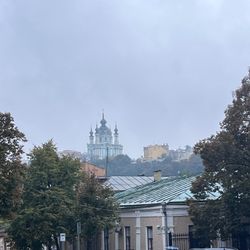Share

Behind The Lines with Arthur Snell
Ep 16: James O'Brien on How they Broke Britain
James O'Brien is often described as the voice of liberal England. With this regular radio slot on LBC and his huge online following, he is a reminder that popular doesn’t have to be populism. His patient, forensic but totally accessible unpicking of cynical political dishonsesty, particularly of the Brexist variety, has been a beacon of sanity for literally millions of people - at a time when so many other media outlets, including the BBC, no longer seem prepared to call out deliberately misleading public messaging. O’Brien sometimes feels like a lone voice of reason and that points to a profound change in our society. Politicians have always tried to avoid answering difficult questions and portray their own actions as virtuous and ingenious, but the kind of profound dishonesty characterised by Boris Johnson coupled with the refusal to take responsibility for your own failings, perhaps best epitomised by Liz Truss, feels like a newer phenomenon. This plays into a wider prospect, of a country that now feels broken, its media, its politics and perhaps most importantly its public services, all deeply dysfunctional. The roots and causes of that malaise are the subject of James OBrien’s new book, How they Broke Britain. In the excellent introduction, O’Brien talks of the boiling frog metaphor and succinctly explains the premise of his book: it is “the story of slowly boiled water from which an entire country failed to escape”.
Like anyone who has been profoundly distressed by that boiling water, I have been a big admirer of O’Brien’s work, both on LBC and on Twitter. This was particularly the case as his book has a similar title to my own, How Britain Broke the World. I wouldn’t go so far as to suggest they are companion volumes, but I was to some extent attempting in my work to look at some of the similar effects of Britain’s internal politics on the wider world. So it was a huge pleasure and privilege to have James on the podcast. He is, as you’d expect for a consummate radio presenter, an excellent guest and I really hope you get as much from listening to him as I did from interviewing him.
Thanks for listening and please subscribe to this show if you haven’t already. You can follow my work at https://arthursnell.substack.com/ as well as on Twitter and Bluesky.
Finally, a link to the Disorder Podcast which I mentioned at the top of the show: https://www.goalhangerpodcasts.com/disorder
More episodes
View all episodes

EMERGENCY EPISODE: The Fall of Aleppo
35:35|The extraordinary turn of events in Syria in recent days saw the city of Aleppo, once Syria's largest and a key part of the earlier story of Syria's revolution, fall to Syria's rebels, with the soldiers of the Assad regime in chaotic retreat. I spoke to Thomas van Linge, one of the few journalist who has been covering the story, about what has happened and the reasons why.You can support Thomas's work here https://ko-fi.com/thomasvlinge and he is active on Twitter and Bluesky.If you'd like to support this podcast the easiest way to do that is becoming a paid subscriber of my Substack: arthursnell.substack.com
14. Out of the shadows: MI6 Russia expert Christopher Steele on Trump and the new world order
46:24||Season 3, Ep. 14Christopher Steele needs almost no introduction. But if you are interested in learning more about him you can buy his new book, Unredacted, here https://www.amazon.com/Unredacted-Russia-Trump-Fight-Democracy/dp/0063373432/ref=sr_1_1?crid=VZCQ114PBRZX&dib=eyJ2IjoiMSJ9.qv6Zf5VhmrCD7zu54PyFEawg2dYzrTOT0sYgpY4o3jI.poSf3-HXXCfxlQwgK_vy6Xubh-BXVRLmOA0iPDWXVhc&dib_tag=se&keywords=unredacted+christopher+steele&qid=1732891790&sprefix=unredac%2Caps%2C201&sr=8-1
13. What's going on in Iran
01:01:04||Season 3, Ep. 13Charlie Gammell is a historian and Iran expert. His latest article on Iran can be found here: https://www.spectator.co.uk/article/the-winds-of-change-are-blowing-in-iran/
12. The age of bilateralism
01:06:27||Season 3, Ep. 12Dr Jonathan Terra is an American academic and analyst who has been based in Prague for 30+ years. We spoke about the impact of a Trump presidency on Eastern Europe and the wider geopolitical context.
11. The New World Order
47:46||Season 3, Ep. 11I spoke to Mike Martin, military expert, writer, former soldier and now Liberal Democrat Member of Parliament for Tunbridge Wells about the new world (dis)order that lies before us under a Trump presidency.Mike can be found here: https://x.com/ThreshedThought and here https://mike-martin.co.uk/ and his book How to Fight a War is available in all the usual places.
10. Conspiracies and campaigns - Jason Pack on the 2024 election
01:08:23||Season 3, Ep. 10In this episode I spoke to Jason Pack of the excellent Disorder podcast (https://x.com/DisorderShow) about conspiracy theories and how they are affecting the 2024 US presidential election. We also spoke about the state of the race which remains on a knife edge. You’ll be interested to look at Jason’s article in The New European on conspiracy theories here https://www.theneweuropean.co.uk/a-lizard-persons-guide-to-us-election-conspiracy-theories/ and also an article Jason mentioned by Jonathan Winer on how Trump’s people might try a coup in this election https://washingtonspectator.org/endgame-the-risk-of-a-trump-coup-and-how-to-prevent-it/
9. Russia's dirty money: the Nordic connection
40:20||Season 3, Ep. 9I spoke to the Swedish journalist Axel Gordh Humlesjö about his work investigating Russian dirty money in Sweden, especially in relation to Swedbank, Sweden's largest bank, whose CEO has been imprisoned on money-laundering charges.https://x.com/axelhumlesjo?lang=en
8. Digital war - from Ukraine, to the Sahel
01:09:46||Season 3, Ep. 8In the chaotic world we inhabit, the smartphone has become a key element of warfare, even in societies where we might imagine that connectivity is limited by reduced technological sophistication. I was privileged to be able to discuss this rapidly evolving landscape with three brilliant scholars:Professor Mirjam de Bruijn (https://www.universiteitleiden.nl/en/staffmembers/mirjam-de-bruijn#tab-1)Dr Jethro Norman (https://www.diis.dk/en/experts/jethro-norman)Professor Matthew Ford (https://www.fhs.se/sc/profile-page.html?identity=400.78d9ed61181920a3a625796c
SPECIAL UKRAINE EPISODE #VPDFO 1
57:36|A special episode in support of the Vladimir Putin Do F*ck Off - #VPDFO - festival. This event, held in Kyiv earlier in October brought together soldiers, journalists, activists and politicians with the primary purpose of raising funds for a group of charities doing essential work on the ground in Ukraine. Go to VDPFO.org to find more details of the charities involved and please donate using the link below:https://www.crowdfunder.co.uk/p/ukraine-can-win-vpdfo-2024This is a straightforward way to get funds to some incredibly valuable organisations. Everything you donate goes direct to the charities.The festival ran for two days and there were several sessions. This episode contains highlights of the first day and you'll get to hear from day two in a subsequent episode.During the recording you'll hear from Mariia Chepa, Vlad Demchenko, Paul Conroy, Caolan Robertson, Paul Niland, Liudmyla Buimister and Dima Kovalchuk . The event was of course moderated by John Sweeney.